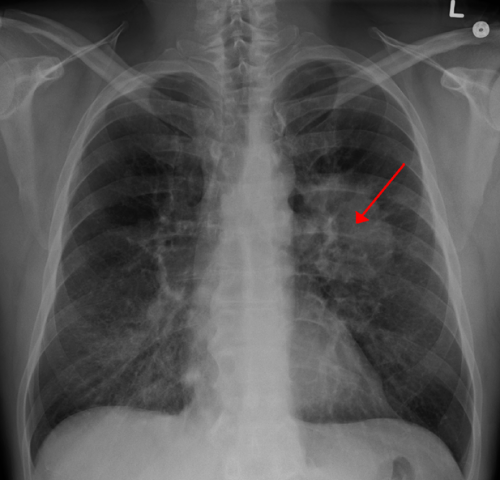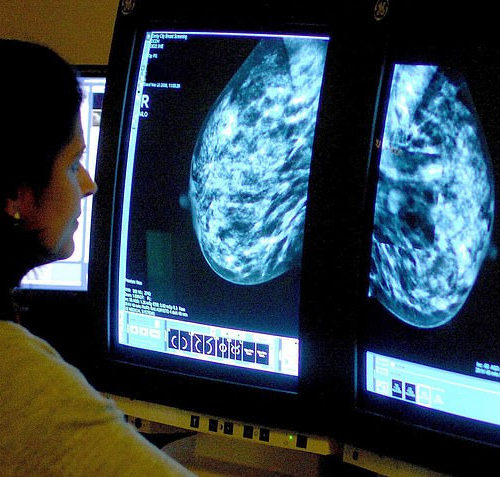by Institute of Cancer Research Lung cancer in non-smokers is a diverse and distinct disease from that in smokers, and is likely to respond differently to targeted treatments, a major new study shows. Scientists studied a population in Taiwan with high rates of lung cancer among non-smokers—and found a range of genetic changes which varied...
Tag: <span>tumours</span>
Cancer vaccine hope: Personalised treatment designed to boost the body’s natural ability to fight the disease shows ‘promising signs’ in clinical trials
By RYAN MORRISON FOR MAILONLINE Researchers take a biopsy of a cancerous tumour to look for certain proteins Each patient has a ‘different cancer’ and the treatment is specifically targeted It is given alongside chemotherapy drugs to boost the body’s immune response So far only eight per cent of patients saw their tumour reduce but...
Cancer drug: New treatment halts tumour growth
By Rachel Schraer Health reporter A drug that could stop cancer cells repairing themselves has shown early signs of working. More than half of the 40 patients given berzosertib had the growth of their tumours halted. Berzosertib was even more effective when given alongside chemotherapy, the trial run by the Institute of Cancer Research (ICR)...
Muscles support a strong immune system
GERMAN CANCER RESEARCH CENTER (DEUTSCHES KREBSFORSCHUNGSZENTRUM, DKFZ) PRINT E-MAIL In the fight against cancer or chronic infections, the immune system must be active over long periods of time. However, in the long run, the immune defence system often becomes exhausted. Scientists at the German Cancer Research Center (DKFZ) have now found initial evidence in mice...
T cells engineered to target senescence
Senescence is a hallmark of cellular ageing and contributes to many diseases. A new method enabling immune cells to target senescent cells might offer improved therapeutic options. Senescence is a form of cellular stress response. In some circumstances it can be harmful, and efforts are under way to develop therapies that target senescent cells. Writing...
Cancer drug: New treatment halts tumour growth
By Rachel Schraer Health reporter A drug that could stop cancer cells repairing themselves has shown early signs of working. More than half of the 40 patients given berzosertib had the growth of their tumours halted. Berzosertib was even more effective when given alongside chemotherapy, the trial run by the Institute of Cancer Research (ICR)...
How do cytotoxic lymphocytes kill and do not get killed?
Cytotoxic lymphocytes are the real MVPs. They guard our bodies from cancerous and virus-infected cells by killing them. In this way they are aggressive defenders, but how their actions do not kill them? A new study from UCL might have found the answer. Cytotoxic lymphocytes to you may be better known simply as white blood...
Gene changes may predict breast cancer relapse, study suggests
Scientists have identified genetic changes that may predict the likelihood of breast cancer relapse in women taking a common type of hormone therapy. The findings could in future help to identify women at risk so they can be given alternative treatments to lower their chances of developing secondary breast cancer, which is incurable. Hormone therapy...
Cutting off melanoma’s escape routes
Stopping melanoma from spreading to other parts of the body might be as simple as cutting off the blood supply to the cancer, according to researchers. Scientists from The University of Queensland’s Diamantina Institute have discovered stem cells which form blood vessels in tumours, and have identified how to ‘switch the cells off’. Image:Melanoma in...
Hotter bodies fight infections and tumours better—researchers show how
The hotter our body temperature, the more our bodies speed up a key defence system that fights against tumours, wounds or infections, new research by a multidisciplinary team of mathematicians and biologists from the Universities of Warwick and Manchester has found. The researchers have demonstrated that small rises in temperature (such as during a fever) speed up the speed...





